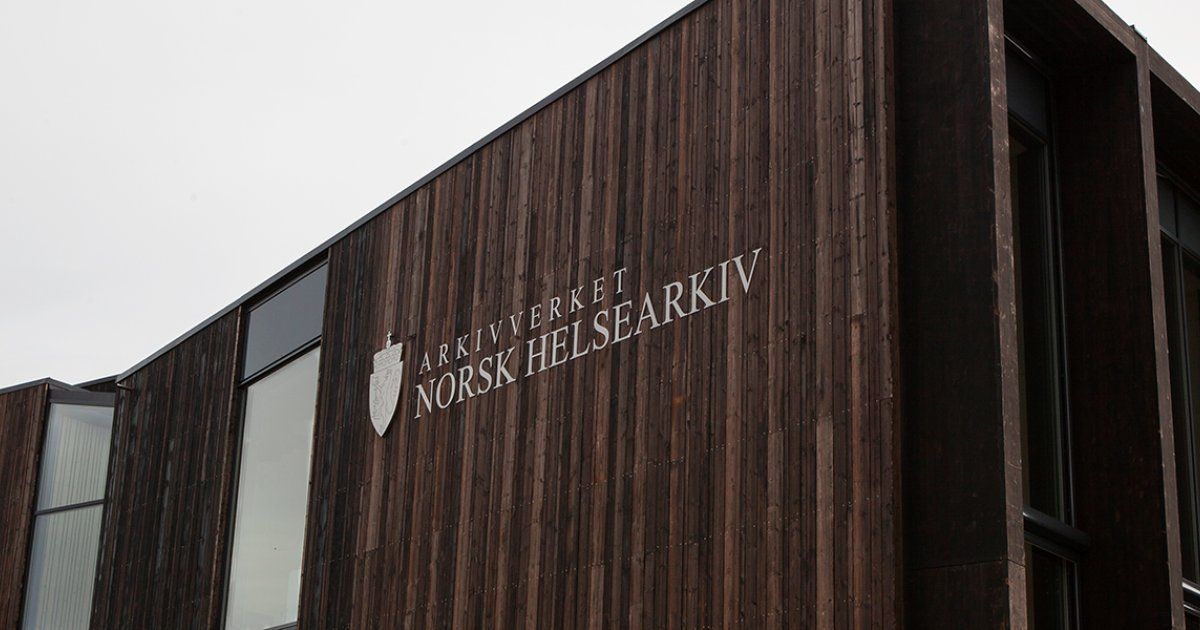Health data preserved in world-first archival project

The Norwegian Health Archive’s (NHA) mission is to contribute to efficient documentation management and to secure, preserve and make available a broad and versatile selection of records.
CHALLENGE
The Norwegian Health Archive carries the important responsibility of ensuring that the nation’s health data lives on indefinitely. Currently, a completely new facility for the NHA are being built at Tynset, Norway making it a truly unique archival institution.
NHA has begun a 10-year project that will see the establishment of a digital long-term archive for medical patient records. This project has global significance for how data can contribute to understanding a nation’s health. The NHA responsibility would be to receive the electronic journals of deceased people from both public and private hospitals. A lot of the historical information have been kept on paper and will be transported to the NHA for digitization and the digitization facility that are being set up on site.
As a parallel stream of data flow the NHA will also start to receive born digital electronic records from the hospital. Both data streams shall then be transferred into the digital preservation system for long-term protection and storage as well as the opportunity to offer access to researchers and next of kin upon request.
The project will also require the development of a Health Archive Register, a single all-inclusive database, with indexing and registered metadata of all the files and records being submitted to the digital repository.
In order to find a solution to fit the complex needs of the Norwegian Health Archive, a very thorough requirement specification process was conducted, in collaboration with the Norwegian National Archive and Norwegian National Library. As a result of the process, a list of close to 100 requirements were made, asking the market to find the state-of-the-art digital preservation system to solve the challenges.
SOLUTION
Following a substantial procurement process, understanding the complex workflow of NHA and the industry leading standard for digital preservation in the OAIS-framework (ISO 14721), Piql won the tender of delivering the digital preservation system with complementary modules to ensure solid ingestion and a flexible health register. This world first project required a proven yet innovative purpose-built solution. Piql won the tender together with Artefactual Inc, Canada, which is the lead developer of the world-leading open digital preservation platform, Archivematica.
The solution will feature an adapted version of Archivematica with additional functions specific to the purpose to enhance searchability, data validity and compliance within the Norwegian health regulations and demands for archival health packages.
The solution offered has been adopted globally and used by organizations such as Unesco, the World Bank and Museum of Modern Art (MoMA) in New York. It has successfully been built and developed to fit requirements in the OAIS framework, making it a state-of-the-art digital preservation system. Now it will also be used to safeguard and store health journals.
The solution will be flexible to receive several sources of data, but mainly in the beginning the main sources of data would come from the digitization facility and electronic health journal submissions. The information will be processed and prepared before being submitted into the preservation platform for long term storage.
FUTURE
The project will begin April 2019 with deployment of the digital preservation system to be in production in 2nd half of year. Further, the parties have signed 10- year support contract for the preservation system, ensuring a long and fruitful partnership between the two parties. With the establishment of the NHA, one of the world’s most exciting digital archival project will see the day of light bringing world class expertise on open-source systems and digital preservation to Norway. The collaboration between the to parties could also contribute in enhancing the global knowledge on how to safeguard electronic health records, a new domain to adopt the learnings of the challenges with long term digital storage and understanding of digital preservation. Further, the set up for the NHA could also be adopted by other similar public institutions with a responsibility to store digital files for the long term and guarantee future access for future generations to conduct research and gain insight to knowledge.


